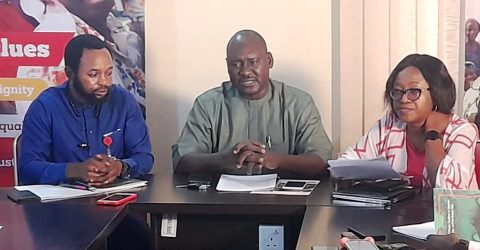By Fatima Zahra Muhammad
ASHENEWS reports that the 2022 Corruption Perception Index (CPI) released by Transparency International (TI) has ranked Nigeria 150 out of 180 countries, moving up five points from its ranking in 2021.
Nigeria also scored 24 out of 100 points, maintaining its score on the 2021 CPI.
This, according to the report means that Nigeria neither improved nor declined on the CPI index.
Presenting the report on Tuesday in Abuja, the Executive Director of the Civil Society Legislative Advocacy Centre (CISLAC), Auwal Ibrahim Rafsanjani said that the CPI measures the levels of corruption in the public sector across various countries in the world.
According to Rafsanjani, the CPI aggregated data from eight sources on the level of corruption in the public sector.
“While the index does not show specific instances of corruption in the country, it indicates the corruption perception in Nigeria. The index is impartial, objective, and globally acknowledged as the most widely used cross-country data for measuring corruption.
“The maximum points a country can score is 100 points, and the least is zero. Zero signifies the worst-performing country and 100, is the best-ranked.
“Nigeria scored 24 out of 100 points. Compared to 24 points in 2021 CPI, there has been no change in the country scoring between 2021 and 2022. In the country comparison for the 2022 CPI, Nigeria ranks 150 out of 180 countries compared to 154 on the 2021 CPI results,” he said.
Rafsanjani also stressed that the report, which acknowledges the efforts of anti-graft agencies in the fight against corruption however serves as a clarion call for the country to improve on its indices.
He expressed concern that despite high expectations that the present administration could address corruption, the CPI index for the country has remained consistently low in the last 10 years.
Reasons for Nigeria’s Stagnation
According to CISLAC, the CPI index for the country has failed to improve due to factors such as the undue interference of politicians in the activities of anti-corruption agencies in Nigeria.
The report further highlighted some key acts which have affected the progress of the country’s CPI including the recent pardon of some convicted high-profile individuals, the prevalence of high-profile corruption, failure to investigate issues of corruption, continuous occurrence of oil theft as well as the increased spending on security.
This is in addition to the subsidy regime, import of toxic fuel in 2022 for which no one has been held accountable, lack of transparency and accountability in the security sector which has led to increased insecurity and attacks by non-state actors, lack of transparency in constituency projects as well as challenges with the country’s judicial sector.
Way Forward
To address this anomaly and help Nigeria improve on the indices, CISLAC recommended that a National Strategy on Corruption be implemented to ensure that everyone is carried along.
This is as it recommended the establishment of a database on asset recovery, addressing the lingering issue of oil theft, ensuring transparency in the petroleum subsidy process, and investigation into the importation of toxic fuel into Nigeria in 2022.
This is in addition to transparency and accountability in Nigeria’s Security sector, transparency in constituency projects, and consultation with citizens before granting presidential pardon, high-profile corruption cases should be pursued to a logical conclusion.



